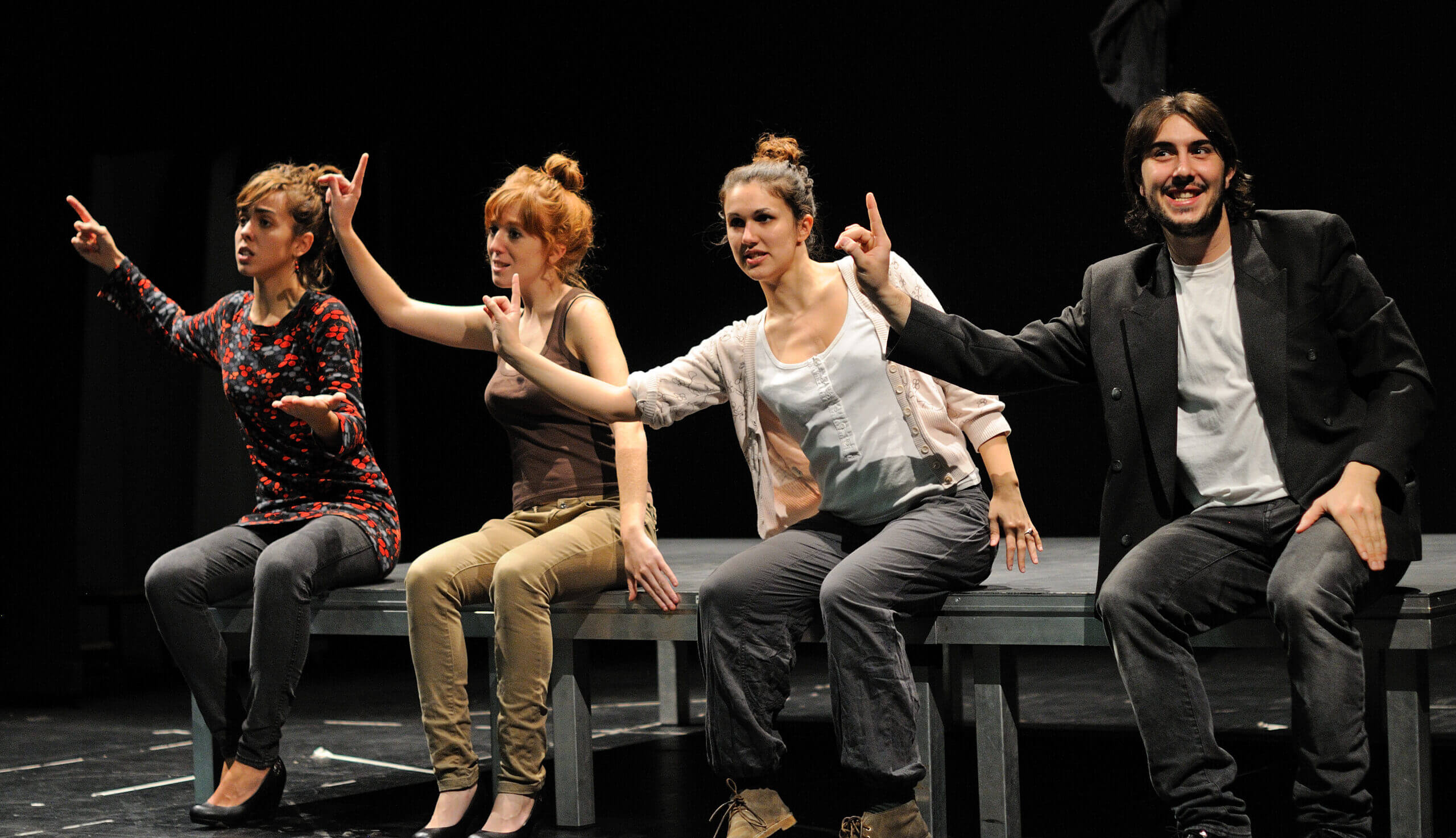
The craft of acting requires thespians to have a command of physical, mental, facial, vocal, and emotional expression. To promote fresh and responsive performances, actors can warm up their minds and bodies with a wide assortment of games. These exercises help performers nail their auditions and work seamlessly with their scene partners. In the spirit of play, these games increase imagination, promote flexibility of expression, ease anxiety, and strengthen bonds between actors. While some can be played alone or with a partner, others are best played in groups, such as in drama class or as warmups in theater. Here are four acting exercises, along with a few variations, to strengthen your acting skills.
Bus Stop
In the game of Bus Stop, performers interact as spontaneously created characters on a supposed bus bench. Character #1 joins person #2 who is already seated on the bench and finds a creative way to make #2 want to leave the bus stop. Likewise, person #2 comes up with an excuse to exit the scene. Whatever character you create, make sure to use the voice, gestures, and personality of your character fully. A variation of this exercise involves choosing a theme before the game begins for each participant to weave into their performance one way or another, such as the word “lion.” The game of Bus Stop develops imagination, facial expressions, body language, character voice, and improvisation. If you’re alone, you can still play the game by observing a person out in the world—say, waiting in line at the market—and then imagine his or her current state of mind, emotions and thoughts, and imagine their backstory. Why is that person smirking, smiling, yawning, or frowning?
Reflection
If you’ve ever seen the “I Love Lucy” episode in which Lucy mirrors Harpo Marx, you’ll understand how to play Reflection. Facing your partner, keenly observe his or her physical movements and facial expressions as you mirror each motion. This requires concentration and quick responsiveness. There are other variations of this game. For example, in a class setting you can closely observe a fellow actor as he or she walks around the room in character, and then duplicate each movement as precisely as possible without any degree of exaggeration. If you are alone, you can always find an acting scene or monologue on the internet and imitate the actor’s words, speech, posture, gestures, and emotions.
Heads Up, Heads Down
This exercise requires a group of players standing in a circle. When the leader calls, “Heads Down,” everyone bows their head and looks at the floor. Upon hearing the leader call, “Heads Up,” all participants lift their chins and immediately fix their eyes on one person’s eyes. If two individuals happen to have eye contact, they both sit down for the remainder of the game. The game is repeated until everybody is sitting down or one remains standing at the end. Heads Up, Heads Down can help reduce shyness, increase concentration, and promote group awareness.
Change of Roles
This exercise can be played alone or with a partner or group. First, choose five roles that are distinct from one another. For instance: a school librarian, champion boxer, stand-up comedian, motivational speaker, and sergeant in the army. (You decide which five roles to list.) Then, one by one, improvise each character for 45 seconds to a minute, owning the role as much as possible. It’s fun to capture each of these personas along with their unique intonations, energy, points of view, gestures, and emotional states. If playing with a partner or group, the viewers can assess each of your performances and say what worked best and what could use some development. Once you’ve mastered any of the roles, replace it with a new one.
Want to get your acting career started? Sign up or login to Casting Frontier and start auditioning today!
Related articles:
Read a 5-Year-Old’s Life Affirmations Before Your Next Audition
4 Tips for Playing Villains
Famous Actors on Their Childhood Crushes




